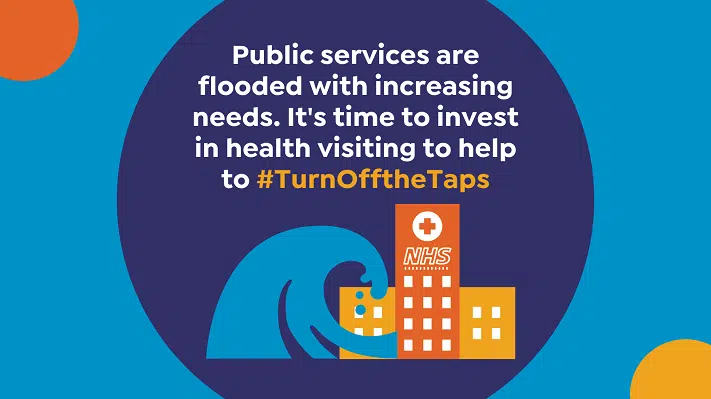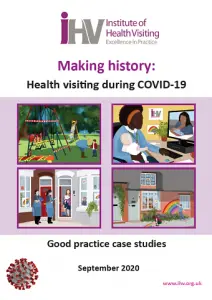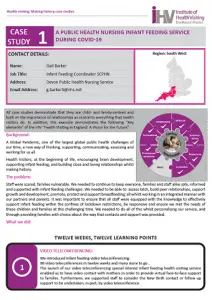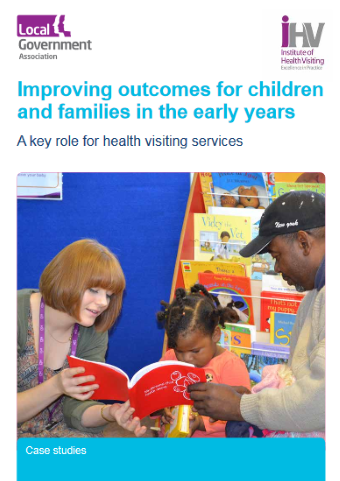Call for Case Studies
iHV is working collaboratively with Public Health England to capture the stories, workarounds, innovation and rapid learning that has taken place in the health visiting service since the country went into lockdown in March.
We plan to publish these in a special edition of our case study series as a record of this time when history is being made. Capturing your experiences in this way will help us celebrate your successes, learn from each other and provide a legacy for future generations to reflect on.
We invite you to be part of this by submitting your experiences in a variety of ways listed below.
Tell us what it has been like for you? Demonstrate why health visiting matters?
Whilst working in a pandemic has presented numerous challenges for the health visiting profession and the families that we work with, it has also provided a unique opportunity for the profession to demonstrate its crucial role, supporting children and families across the breadth of clinical, social and statutory need.
The pace and scale of change has been second to none and health visitors have risen to this challenge with professionalism and autonomy, flexing and developing innovative service “workarounds” to ensure that families receive the best possible support. Different areas have responded in different ways. No doubt some innovations have worked better than others – it is only by testing and refining that we can really learn and drive quality improvement. It is imperative that we capture this learning to ensure that we are better prepared for any future pandemics.
What do we need to celebrate? and what have we collectively learned to strengthen future planning?
To avoid reinventing the wheel, or investing time in ideas that have been proven not to work elsewhere, it is important that we all learn from our collective successes as well as our failures.
We are looking for:
- Service level case studies that describe your journey and the ways you adapted your service. We are particularly interested to include case studies which detail the ways you managed social distancing, including use of PPE and technology.
What issues did you face locally? What were the most pressing needs of the families in your area? How did you address these? What did you learn along the way (what worked – what didn’t/ benefits and limitation)? What was the impact/ outcomes (include any data/ direct service user feedback and quotes).
(Your case study should be written following the PHE case study guidelines for standard format, and the additional information listed in the iHV case study template – 1800 words maximum)
- Family stories – families have faced considerable challenges – tell their story. What challenges did they face, why did this matter? what did you do? and how did your intervention make a difference? – what would the outcomes have looked like without health visiting input? We are interested to receive submissions from the breadth of the health visiting role outlined in the 15 High Impact Areas in the iHV Vision (800 words maximum)
- Creative submission – for those of you with a creative flair – have you captured your experiences of working in a pandemic in an artistic way? A poem, a piece of art? We would love to share your stories of working during a pandemic through a variety of mediums.
How to submit your case study:
If you would like the work that you are doing to be considered for this publication, please complete your application following the guidelines (see iHV case study template).
We welcome the inclusion of photographs which capture your experiences and the ways that your service has adapted during the pandemic. Please ensure that you have gained consent from all subjects in the photographs (service users and staff) for their use within the iHV case study publication.
Please send your completed application to [email protected] by midnight on Monday 29 June.
All submissions will be peer reviewed and applicants will be notified of the outcome within 3 weeks of the closing date.
If you would like to talk through your ideas – please contact Alison Morton [email protected]







